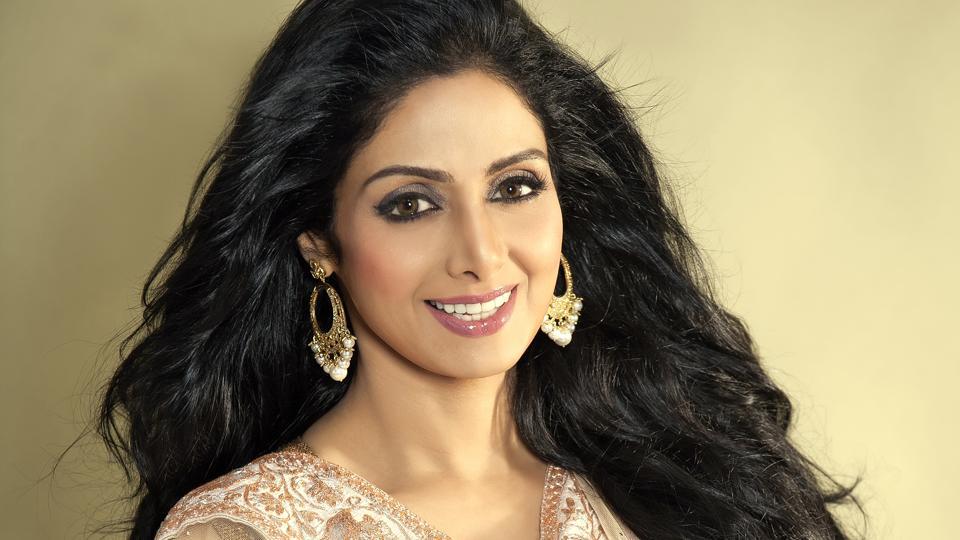‘Why Sridevi stood as Bollywood’s ultimate gay icon’
The legendary actress passed away unexpectedly in Dubai last month.
By Will Stroude
The star of Channel 4’s Muslim Drag Queens, Asifa Lahore, reflects on how Sridevi Kapoor inspired a generation of LGBT people in South Asia.
Sridevi was a Bollywood star beyond compare. At the time of her passing, last month at the age of 54, she’d starred in close to 300 films over five decades, captivating audiences worldwide in a plethora of Indian languages. From beginnings as a child actress in the South Indian film industry to starry heights as Bollywood’s highest-paid actress, and single-handedly bringing the box office alight, Sridevi was the epitome of an icon. To many she represented change, to others self-expression but to me she was synonymous with my trans identity.
My entrancement with Sridevi began at a very early age in the late 1980s all thanks to a Channel 4 show called Movie Mahal, a Sunday morning show highlighting Hindi films. During a compilation sequence, a wide-eyed beauty captivated me, donning the brightest red lipstick and wearing gold from head to toe as she writhed around a room full of men in the camp fest song that is ‘Hawa Hawaii’ from the film Mr India.
Here was the most glamorous and hypersexual woman I had ever laid eyes on, but such a different type of Bollywood woman; she wasn’t the meek, subversive woman of films of old — she was powerful, unashamedly feminine but yet so relatable, her comic charm and expressions had me staring at that screen. It was loud, brazen, but at no point was it obnoxious. That first glimpse ignited a voice in me which said: “That’s who I want to be.”
Sridevi became the first woman I looked up to and escaped with through her dances and songs. When the world demanded that I adhere to strict masculine arbitrary roles, she was my oasis. This sense of support is shared by many in the LGBT+ community who are coming to terms with her passing. Sridevi was a hero, an artist and a star who unconsciously helped them deal with their problems, through her depiction of people in conflict.
Her characters were never passive, never simply black or white and this resonated with members of the queer community who were coming to terms with their own identities.
Those struggling found an affinity with the characters she chose to play, incorporating our struggles and dysphoria into her performances, a gay icon to LGBT+ Bollywood audiences on a similar level to Judy Garland and Marilyn Monroe in Hollywood. Everyone wanted her and wanted to be like her. I certainly did. She could be childish, mature, witty, serious, enticing and sexy; she was everything and everyone, the ultimate actress.
Her power as the consummate and versatile professional transcended the screen and she was the fiercest champion for equality, refusing to simply be arm candy. She was a feminist and strived for better, managing the impossible in a deeply misogynist film industry, becoming an equal of male heroes.
At the height of her fame she demanded roles groomed for men, refusing to be anything less than an equal, and was notorious for rejecting roles that didn’t push boundaries.

She took that baton for equality and be it by effortlessly breaking down the binaries of gender in her films such as Chaalbaz, or by aiming to push the quality of roles offered to her, she was a leading force in creating a more diverse playing field for female actors that followed her. She refused to be contained by misogynist attitudes of the Eighties and Nineties Bollywood and as heart-breaking as it is to come to terms with Sridevi’s death, it is so powerful that her demise coincides with a year that is quickly shaping to be the year of the woman.
Sridevi was notoriously private and infamously shy but there was an unswerving self- belief and determination that spoke through her film presence, through the twinkle of her eyes, none more so than in one of her last films, the international mega hit English Vinglish, billed as a comeback after a self-imposed exile from Bollywood to raise her family.
Portraying a middle-aged woman attempting to learn a new language, perhaps a dig at all those rress inches that had mocked her over the years for her lack of English even though she was a polyglot mastering several Indian languages, there seemed to be strength in her conviction.
This was no more evident than when she stands up in the film to the defence of her English teacher who happens to be gay. No actresses, especially any of her calibre had shown such direct support for the LGBT+ community, on or off film. For someone who was so selective of her roles, it doesn’t strike me as a coincidence.
Sridevi’s career and life are, to me, personal templates of femininity, freedom and expression. She was a director’s dream, mastering whatever she was asked to do, be it to dance like a snake and for her own personal career growth Sridevi did it, and she did it brilliantly. But tasked with such directions that were somewhat gratuitous and for the male gaze, Sridevi still managed to shine and spin it on its head.
She gave me the courage to dance and express when the world attempted to forbid me from doing so and for that I am for ever grateful.
Asifa Lahore starred in Channel 4’s Muslim Drag Queens. Follow her on Twitter @AsifaLahore
